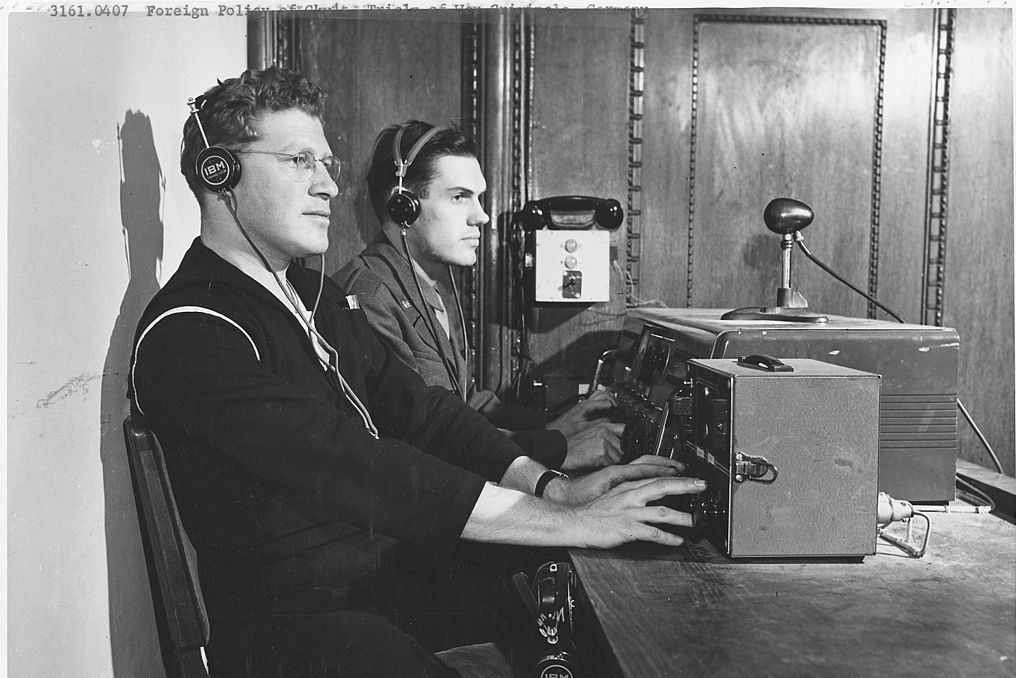The Nuremberg Trials and the birth of simultaneous interpretation
In the wake of World War II, faced with the conundrum of how to conduct the Nuremberg international war crimes trials (1945-46) concurrently in English, French, Russian and German, a ground-breaking plan was devised to provide real-time interpretation of the proceedings into and out of all four languages. At the time, simultaneous interpretation was in its absolute infancy and had never been attempted on such a scale. To pull this feat off, a team of polyglots with a talent for interpretation was headhunted; the courtroom equipped with an experimental, multi-channel sound system; and immersion training began.
The picture shows two American technicians operating the “Interpreting Device” in the courtroom.
The endeavour was a success: the first international criminal tribunal in history operated unhindered by language barriers and the profession of simultaneous interpreter was born. International criminal justice has developed greatly since Nuremberg (witness the work of international criminal tribunals and the International Criminal Court in Europe and overseas). Similarly, the pioneering interpreters of Nuremberg went on to introduce simultaneous interpretation at the United Nations, to codify the profession of conference interpreter, and to found its International Association of Conference Interpreters (AIIC) in 1953.
Today, the successors to the Nuremberg interpreters provide simultaneous interpretation in multilingual settings the world over, not least in the international courts of The Hague, and membership of AIIC continues to be an important career goal for professional conference interpreters. Here in the Netherlands, AIIC conference interpreters provide their services through their own not-for-profit cooperative society, Congrestolken.
You can watch a recording of the interpreters at work here. Start at 02:00 to avoid the first two minutes of the footage during which nothing much is happening.
Image credits: National Archives and Records Administration [Public domain]


